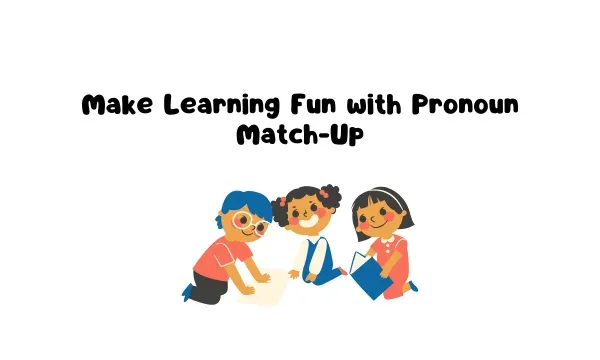Make Learning Fun with Pronoun Match-Up
Introduction to the activity:
Pronoun-antecedent agreement is an important concept in English grammar that students need to master. However, some situations can make it more challenging to apply this rule correctly. In this activity, we will focus on special problems in pronoun-antecedent agreement and use a game to make it more engaging and fun for students.
Title for the activity:
Pronoun Match-Up
Objectives:
- To review the concept of pronoun-antecedent agreement
- To identify and solve special problems in pronoun-antecedent agreement
- To practice using different types of pronouns in sentences
Materials:
- Whiteboard or chart paper
- Markers
- Index cards with sentences containing special problems in pronoun-antecedent agreement
- Two sets of pronoun cards (one set for the subject pronouns and one set for the object pronouns)
Procedure:
- Begin by reviewing the concept of pronoun-antecedent agreement with the students, including the basic rules and the special problems that can arise.
- Divide the class into two teams.
- Shuffle the index cards and place them on the whiteboard or chart paper.
- One student from each team will come up and choose a card. The team that chooses the card will read the sentence out loud and identify the special problem in pronoun-antecedent agreement.
- The two students will then race to see who can correctly match the subject or object pronoun card to the antecedent in the sentence first.
- The student who matches the pronoun correctly earns a point for their team.
- Repeat with new students and new cards until all cards have been used.
- The team with the most points at the end of the game wins.
Assessment:
The teacher can assess student understanding of special problems in pronoun-antecedent agreement through their participation in the game and their ability to correctly match the pronouns to the antecedents.
Extension:
To extend this activity, students can create their own sentences with special problems in pronoun-antecedent agreement and challenge their classmates to solve them.
Variations:
To make the game more challenging, the teacher can include sentences with multiple special problems in pronoun-antecedent agreement or use more complex types of pronouns (e.g., possessive pronouns).
Reflection:
After the game, the teacher can lead a class discussion on the challenges of pronoun-antecedent agreement and how this game helped students understand and apply this grammar rule.
Notes:
This activity is suitable for students in grades 6-8.

